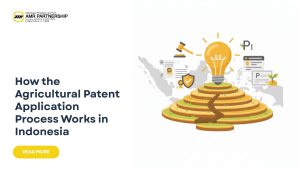
The agricultural patent application process in Indonesia plays a crucial role in protecting innovation within the agricultural sector. As technology and sustainability continue to shape modern farming, patents ensure that inventors, researchers, and agritech entrepreneurs maintain ownership over their innovations. Through proper legal protection, you can secure exclusive rights, prevent imitation, and maximize the commercial value of your invention. To understand this system better and how amr.co.id can support your intellectual property needs, let’s explore how it works.
READ MORE: Design Patent Rejection Appeal Services That Actually Make a Difference
Why Agricultural Innovation Needs Legal Protection
Agriculture is no longer just about soil and seeds. The modern agricultural landscape thrives on innovation—from biotech developments and precision farming tools to eco-friendly fertilizers and water-efficient irrigation systems. With the rapid growth of agritech, protecting intellectual property is essential.
In Indonesia, patents provide inventors with exclusive rights to their inventions. Without proper protection, others could reproduce or sell your technology without permission, diminishing your competitive advantage. A strong patent system helps foster innovation, attract investors, and enhance the nation’s agricultural resilience.
A legal expert once explained that a patent acts as a strategic barrier, safeguarding your ideas from replication while enhancing your product’s market credibility. For businesses and research institutions, obtaining a patent is not just a legal formality—it’s a smart investment for long-term growth and recognition.
Patents in agriculture cover a wide range of innovations, such as:
- Bio-based fertilizers or pest control formulas.
- Smart farming devices and sensors.
- Genetic engineering processes to improve yield.
- Advanced post-harvest technologies.
By securing intellectual property rights, innovators can gain confidence to continue developing new ideas. This balance of protection and innovation drives sustainable growth across Indonesia’s agricultural ecosystem.
READ MORE: Fast Track Patent Registration in Indonesia: How to Speed It Up
Understanding the Agricultural Patent Application Process
Here’s how the agricultural patent application process typically works in Indonesia. While it may seem complex, it follows a logical and structured approach that ensures fairness and innovation credibility.
Step 1: Check if Your Invention is Eligible
The first step is determining whether your invention qualifies for a patent. To be patentable, your agricultural invention must meet three key criteria:
- Novelty – The invention must be new and not previously disclosed anywhere.
- Inventive Step – It must be an original idea that isn’t obvious to someone skilled in the field.
- Industrial Applicability – It must be capable of being produced or used in an agricultural industry.
Certain types of innovations, such as plant varieties obtained through natural breeding, are not patentable but may fall under other forms of protection like Plant Variety Protection (PVP).
Step 2: Conduct a Prior Art Search
Before filing, applicants are encouraged to research existing patents or publications to confirm that their invention is truly unique. This step helps minimize rejection risks during examination.
You can search through databases such as:
- WIPO Patentscope (wipo.int)
- DGIP Indonesia Patent Database (dgip.go.id)
- Google Patents (patents.google.com)
Step 3: Prepare Your Patent Documents
A strong patent application includes several components:
- Title and abstract, a concise summary of your innovation.
- Detailed description, an in-depth explanation of how your invention works.
- Claims, define what aspects of the invention are legally protected.
- Drawings or diagrams, visual aids to support your description.
Step 4: File Your Application
Applications in Indonesia are submitted to the Directorate General of Intellectual Property (DGIP) under the Ministry of Law and Human Rights. You may file through the national system or via the international Patent Cooperation Treaty (PCT) route if seeking broader protection.
Step 5: Examination and Publication
Once filed, the DGIP conducts formal and substantive examinations to ensure compliance with patent standards. Your application is then published within 18 months from the filing date, allowing the public to view it.
Step 6: Patent Grant and Maintenance
After successful examination, the DGIP issues a patent certificate. The patent remains valid for 20 years, provided annual maintenance fees are paid.
While the process can take time, it’s worth the effort. Securing a patent is like protecting your innovation with a legal shield, ensuring your hard work results in long-term benefits.
READ MORE: Digital Product Patent Application in Indonesia: What You Need to Know
Beyond Patents Protecting New Plant Varieties Too
Not every agricultural innovation qualifies for a patent. For instance, new plant varieties developed through breeding programs are protected under a separate legal framework known as Plant Variety Protection (PVP), governed by Law No. 29 of 2000.
Under this law, breeders receive exclusive rights over new plant varieties that meet the following standards:
- New – Not previously marketed or registered.
- Distinct – Clearly different from existing varieties.
- Uniform – Consistent characteristics across plants.
- Stable – Traits remain unchanged after multiple propagations.
The Center for Plant Variety Protection and Agricultural Permits (PVTPP), under the Ministry of Agriculture, manages this system. Depending on the crop type, protection lasts between 20 to 25 years.
For example, if a researcher develops a drought-resistant rice strain or a chili variety with improved yield, those can be registered under the PVP system. This complements the patent system by offering legal security for biological innovations.
Both patents and PVP encourage creativity and research in agriculture, ensuring farmers and scientists benefit from their discoveries.
READ MORE: The Real Challenges Behind Medical Device Patent Application Services
The New Chapter PP No. 28 of 2025 and Risk-Based Licensing
In 2025, the Indonesian government introduced a new regulation – Government Regulation (PP) No. 28 of 2025 on Risk-Based Business Licensing. This regulation reshaped how agricultural and variety release processes are managed.
The PP integrates licensing through the OSS-RBA (Online Single Submission – Risk-Based Approach) system. Businesses in agriculture are now required to have a Business Identification Number (NIB) before submitting variety release or permit applications. The system promotes transparency, efficiency, and accountability.
Key improvements under PP 28/2025 include:
Digital Integration is implemented through the OSS-RBA system, which centralizes the licensing and monitoring process.
Risk-Based Supervision is carried out continuously using the LPUSP or Agricultural Sector Business Report
Enhanced Oversight ensures effective post-release monitoring so that new varieties deliver real benefits in the field.
This regulation marks a significant transformation in agricultural governance. It reduces manual procedures, speeds up approval timelines, and ensures that released varieties are effectively contributing to productivity and food security.
As experts in intellectual property law, legal consultants can guide you through these regulatory changes—ensuring your patent or variety release process aligns with the latest requirements.
READ MORE: Design Patents in Fashion: How Style Meets Legal Protection
Patent vs Plant Variety Protection Finding the Right Fit
When protecting your agricultural innovation, it’s important to understand whether a patent or PVP is more suitable. Here’s a simplified comparison:
| Aspect | Patent | Plant Variety Protection (PVP) |
|---|---|---|
| Governing Body | DGIP (Ministry of Law & Human Rights) | PVTPP (Ministry of Agriculture) |
| Focus | Inventions or technologies | New plant varieties |
| Legal Basis | Law No. 13/2016 on Patents | Law No. 29/2000 on PVP |
| Duration | 20 years | 20–25 years |
| Example | Fertilizer formula, irrigation device | New rice or corn variety |
In short, patents protect technological inventions, while PVP safeguards biological innovations. Both mechanisms are essential to building a robust agricultural innovation ecosystem. Choosing the right type of protection depends on the nature of your invention, and consulting an expert can help determine the most effective strategy.
READ MORE: How Landmark Patent Cases Shape the Role of a Patent Lawyer in 2025
Building a Future for Agricultural Innovation
Indonesia’s agricultural sector is entering an exciting era of growth and modernization. With legal frameworks like Law No. 13/2016 on Patents, Law No. 29/2000 on Plant Variety Protection, and PP No. 28/2025, innovators now have multiple pathways to protect and commercialize their creations.
For professionals, researchers, or agritech businesses, navigating the agricultural patent application process can be complex. From drafting documents to responding to examinations, every stage requires careful handling. That’s why partnering with experienced legal consultants can make the process seamless and compliant.
At amr.co.id, you can get expert guidance on intellectual property registration, agricultural patent drafting, and compliance with the latest regulatory standards. Our consultants offer tailored solutions designed to protect your innovation while optimizing time and cost.
You can request a consultation to discuss estimated pricing and suitable patent strategies for your agricultural innovations. For a closer look at your options, feel free to reach out via our WhatsApp or Instagram channels to connect directly with our legal team.
Because understanding the agricultural patent application process is the first step—but taking the right legal action is what turns your invention into a protected, profitable asset.
- Phone (Hunting): +62-21-29036668
- Fax: +62-21-29036672 to 75
- WhatsApp Customer Service: Click here to chat
- Instagram: @amrpartnership
- TikTok: @amr.partnership
- Facebook: Law Firm AMR Partnership
- Official Website: www.amr.co.id






